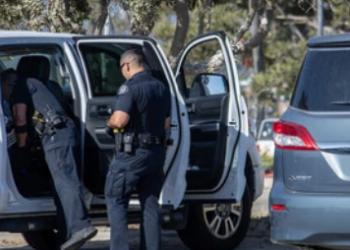"FROM THE CLASSROOM" by Ray Hill, Professor Emeritus, Santa Rosa Junior College
Ray Hill is a retired Police Lieutenant and Professor Emeritus at Santa Rosa Junior College. He has taught in the POST Basic Academy and Advanced Officer Training for 45 years.
This legal issue keeps “popping up”. I had a recent inquiry from a former student and it was the subject of one of Bob Phillip’s past responses to a subscriber. So let’s quickly refresh this area to make sure we are all on the same page.
Scenario - You make an on-view misdemeanor arrest for trespassing on a light rail right-of-way. Your intent is to search incident to arrest. If evidence or contraband is found on the person, you will transport to the station or jail for arrest disposition/booking. If evidence isn’t found, then you will release the suspect on a citation to appear in court (providing there are no wants/warrants that come up or other offenses involved). Does case law give you the flexibility to make this type of discretionary search and disposition?
NO – This is a pretext search and is no more legal under the Fourth Amendment than using an impound/inventory search of a vehicle as a ruse to look for evidence or contraband. The ability to perform a search of a person as incident to an arrest comes with a custodial arrest and physical transportation for a law enforcement purpose (to the station for further investigation/disposition, to jail, to Juvenile Hall or a “601” facility, to a detox center, etc.). Courts have ruled is it the continuing exposure to an arrestee during transportation/facility disposition that creates a safety concern justifying a full search in the field
There is no search incident to arrest on a “cite and release” offense even if actual custody and transportation could be done. An exception to this rule would be when there is an evidence destruction exigency and there is probable cause to believe evidence or contraband is being carried on the person. There is a need to secure this evidence prior to release on a citation. Example: Accepting a private person’s arrest for retail theft and there is probable cause to believe that stolen property is still on the person or hidden in the carried property of the arrestee. A peace officer is allowed to search the person and their property for the items that have alleged to have been taken (490.5(6) P.C.) Note: Store security personnel are only allowed by statute in examine items in plain view (490.5(3) P.C. Example: Due to COVID restrictions, one of the departments I work with here in the North Bay gives officers the discretion to cite out 11150 H&S “stand alone” suspects in the field providing they haven’t been driving or pose a clear danger to self or others. This is because the jail is citing these arrestees out after booking anyway. A logical search can be conducted to recover any evidence relating to U.I. so the suspect doesn’t walk away with contraband after release.
Consent is always an alternative if you feel there is a need to search on a citation-release misdemeanor.
I haven’t quoted any case law here. This has been very definitively accomplished my faculty colleague, Bob Phillips. Please review his 2022 Search and Seizure Update - 22nd Edition (Pages 1162-1166 and Pages 1170-1171) on the Legal Update Publishing Company website.
Bottom Line – Pretext arrest searches are unconstitutional. You have to be truthful on the stand about your transportation motive when cross-examined by the defense attorney during a suppression motion. No “hunt for evidence” is worth committing a felony.
Stay Safe!
RH

